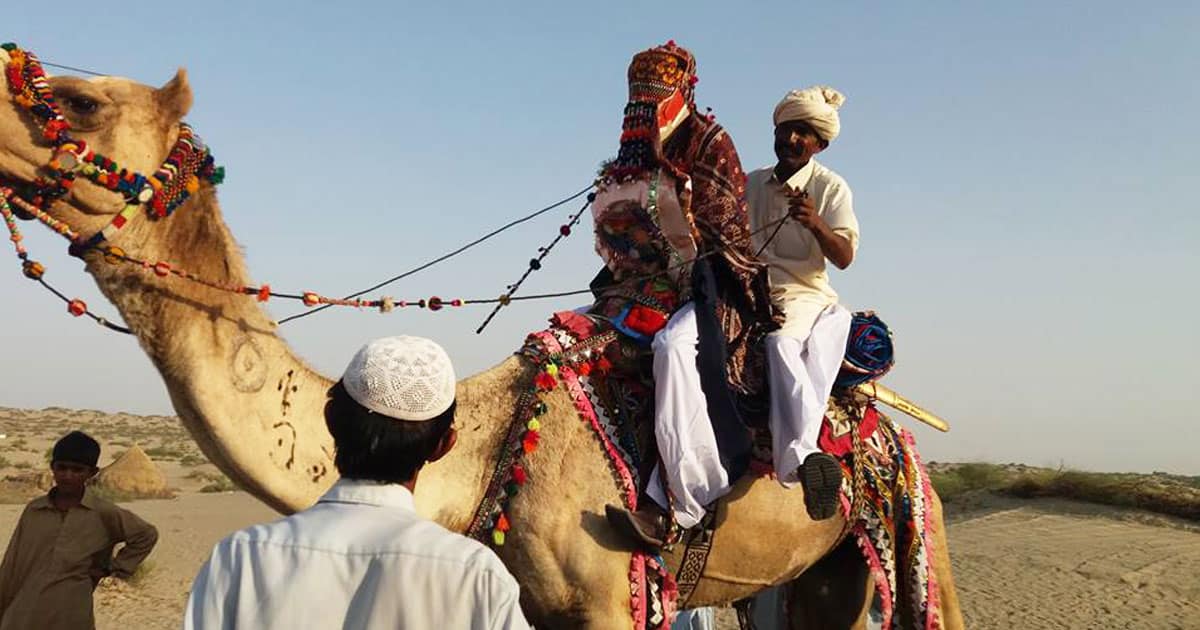The Rajasthan Government has deployed several restrictions across the state to curb the second wave of COVID. The guidelines mention that the buses can have only 50 percent occupancy while the number of attendees at the wedding parties cannot go beyond 31 under any circumstances. Also, maintaining social distancing is mandatory.
This has brought about a major rediscovery of the age-old tradition of taking out ‘baraat‘ processions on camels to transport the groom and the guests to the bride’s home.

As per reports, a wedding party went from Bandeva village in Pokhran to Kusumbla village in Barmer, covering a distance of 7 km on April 30, all riding camels. Plying to the norms, there were 31 ‘baraatis‘ that rode on 15 camels, following all the COVID protocols including social distancing.
This was a common sight up until the era of ’70s-‘80s as camels were the major domesticated animals used as a means of transport and grandeur. These majestic animals were decked up with nose pins, ghungroos, and mirror-fitted clothes to make them look fancy.
The move might just inspire more Rajasthanis to take it up, in turn helping the dying business of the animal.
The number of camels has been going down from 3,25,713 in 2012 to 2,12,739 today. These are the official numbers as per the 20th livestock Census conducted by the Rajasthan government.
Desperate efforts are being taken in Rajasthan to arrest the sharp decline in the population of its state animal. Last month, a cabinet sub-committee made recommendations to end what Arushi Malik, special secretary, animal husbandry, called a “sort of inspector and permit raj” brought on by the Rajasthan Camel (Prohibition of Slaughter and Regulation of Temporary Migration or Export) Act, 2015, which had linked the trade, transport, and deaths of camels to their slaughter, and criminal prosecution. Following this, the BJP government had given “holy cow status” to the camel, blaming its slaughter for meat as the sole reason for the decline in population over the years.
The Ashok Gehlot government is relaxing the provisions of the Camel Act and has roped in the National Research Centre on Camels (NRCC), Bikaner to reverse the decline. The sub-committee has suggested half a dozen amendments, including punishment/ restrictions only for slaughter and allowing transport for sale.

